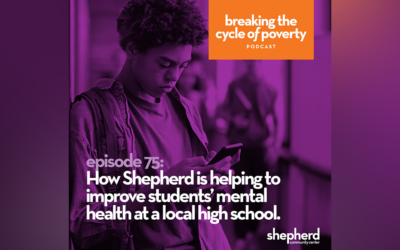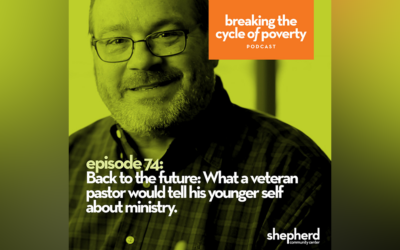On one June weekend in Indianapolis, 23 people, including four children, were shot in 18 separate incidents.
That same weekend, the number of homicides in Indianapolis surged above 100 for the year, putting 2023 on pace to be among the most violent in the city’s history.
“Sociologists have a name for what we’re seeing in our society. They call it anomie,” Jay Height, executive director of Shepherd Community Center, said. “It’s about the general feeling that common values and accepted standards have been erased, especially after the pandemic. It helps us understand what’s happening when we see the high level of violence in Indianapolis and other cities.”
Height has witnessed the consequences of violence, both immediate and long term, throughout the 28 years he’s lived and served in ministry on the near Eastside of Indianapolis. One crime in particular – the 2006 murders of Alberto Covarrubias and Emma Valdez and five members of their family in their Hamilton Avenue home – lingers in Height’s memory.
“They were a part of Shepherd, a part of our ministry. Alberto and Emma’s two young sons were in our programs,” Height said. “The murders were devastating for us and our neighbors, and the entire city.”
One response in the face of such horrific crimes is to pass tougher laws, to arrest more people, and to lock them away in prison for longer sentences. Yet, Height said that approach on its own ultimately won’t stop the violence.
“We have great police officers in our city who are committed to doing all they can to help keep us safe,” Height said. “But they can only do so much. Violence is rooted in a loss of hope.”
Fostering hope is at the heart of Shepherd’s services, including the Shalom Project. The project team includes an Indianapolis police officer, whose salary is paid by Shepherd, and a city paramedic, whose salary is supported in part by Shepherd. Coordinating with Shepherd staff, they build relationships with neighbors, work to deescalate conflicts, provide medical care and other essential services, and nurture trust in the community.
They, in short, plant seeds of hope.
“Reducing violence in Indianapolis and elsewhere comes back to our call to love our neighbors,” Height said. “We reduce violence when we help to feed our neighbors, by mentoring a child, and by walking across the street to offer encouragement.”




